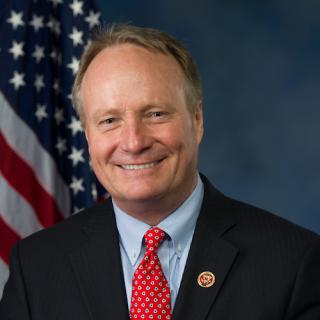Financial Services and General Government

Chairman Dave Joyce
2000 Rayburn House Office Building
(202) 225-7245
Majority | Minority |
| Dave Joyce – Chair | Steny Hoyer – Ranking Member |
| Steve Womack | Mark Pocan |
| Mark Amodei | Marie Gluesenkamp Perez |
| Ashley Hinson | Glenn Ivey |
| Michael Cloud | Sanford Bishop, Jr. |
| Chuck Edwards | |
| Mark Alford | |
| Nick LaLota – Vice Chair |
Recent Activity
Thank you, Madam Chair, for yielding.
First, I want to thank Chairman Quigley and Ranking Member Womack for their work on the fiscal year 2023 Financial Services and General Government Appropriations Bill. I also want to acknowledge the committee staff for their efforts.
Thank you, Madam Chair.
First, let me thank the chairman of the subcommittee for his friendship and approach to the committee's work. I recognize the hard work from him and his staff, which have allowed us to move the process forward. I would also like to thank my staff as well.
I am grateful the chairman included many priorities for Republican Members and addressed several bipartisan priorities such as helping small businesses, supporting sanctions programs, and providing additional security funding for the Supreme Court.
WASHINGTON – Today, the full committee met to consider the fiscal year 2023 subcommittee spending levels, known as "302(b)" allocations. The appropriations bills for the subcommittees on Defense and Legislative Branch were also considered by the full committee.
Madam Chair, thank you for yielding.
As we sit here today, inflation is 8.6 percent above last year, the highest it's been in more than 40 years. Economists are saying American households should budget an extra $5,000 this year to cover rising prices – that's over $400 a month. Many families simply cannot afford this.
Prices of everyday goods have skyrocketed over the last year under the Biden Administration. For example:
WASHINGTON – Today, the Homeland Security Subcommittee and Financial Services and General Government Subcommittee met to consider their fiscal year 2023 appropriations bills. The measures were reported out to the full committee with concerns raised by Republicans.
I want to thank Chairman Quigley for presenting the fiscal year 2023 Financial Services and General Government appropriations bill. I also want to recognize the work of the ranking member of the subcommittee, Mr. Womack.
As a result of the chairman and ranking member's efforts, the bill before us includes many priorities of Members on both sides of the aisle, including:

